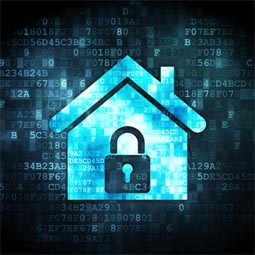 Here are some tips that can improve the performance of your alarm system
Here are some tips that can improve the performance of your alarm system
- Test your alarm system and your central station signal regularly. The manufacturer recommends testing your alarm system weekly.
- Never assume that your alarm system is working correctly because the keypad shows normal. It’s important that you check your window and door contacts after a lightning storm for proper operation. If lightning strikes close by, it can weld your contacts closed. If this occurs the alarm panel will think the circuit is good when its actually bad. The easiest way to test your windows and doors is to put the keypad on the chime or test mode. When you open a door or window the keypad should chime or beep.
- If you have a phone company or a cable technician at your premises working on your phones, be sure to test your alarm system phone connection before they leave.
Always contact our office for the following:
•To change or update names and numbers on your emergency contact list.
•If you want to test your system.
•To let us know when you will be away from home for an extended period of time.
•You hired a new employee and want to assign a new keypad code and password.
•You want to add or delete temporary keypad codes or passwords (for cleaning people, house sitters etc.).
•To request a service call and have your system checked.
•To ask questions concerning your security system.
False Alarm Prevention
When you accidentally “trip” your alarm, here’s what you should do:
• Call the Central Station Immediately and request to cancel dispatch.
• Know your system password! Incorrect password will result in a Police Dispatch.
• Make sure all zones are secure (doors and windows should be closed and locked).
• If you have contacts, motion or audio (glass break) detectors make sure that windows and doors are secured and fit properly. A breeze or ceiling fan can move curtains and plants, causing motion sensors to trigger. A glass break detector may react to outside noise (i.e. thunder).
• Keep insects and spider webs away from motion detectors. This will cause a false alarm.
• Before setting your alarm system make sure family pets are in a “safe” area where they will not disturb motion detectors, unless detectors are pet immune and within immunity levels.
• If you need to go back into your house after arming your system, take time to disarm the system, then rearm when you leave.
• Do not allow any moving items to remain in an area where a motion detector is located. Loose ballons, banners,and fans may cause false alarms.
• Everyone with a key to your property should know how to operate the system and have there own password.
• Investigate all unexplained alarms. Test your system on a regular basis.
• Make sure that your emergency contact list is current and accurate.
Home Security Tips
Consider the following statements and evaluate your home.
•Doors are solid wood or metal.
•Doors fit well into opening, not loose or badly damaged.
•Doors include deadbolts of high quality.
•Windows are secure with no broken glass or locks missing.
•Curtains or shades are drawn to prevent anyone from looking into your home.
•Emergency numbers are posted close to all telephones.
•Valuables are marked, inventoried and photographed.
•Spare keys are kept with trusted neighbors, not under the rock or mat outside your home.
•Trees and bushes are kept trimmed around your home.
•Lights outside your home are working properly.
When Leaving Town it would be a good idea to:
•Have someone collect your newspapers and mail?
•Park cars in your driveway?
•Leave various lights on?
•Have someone watch your home for you?
•Have someone mow your yard?
